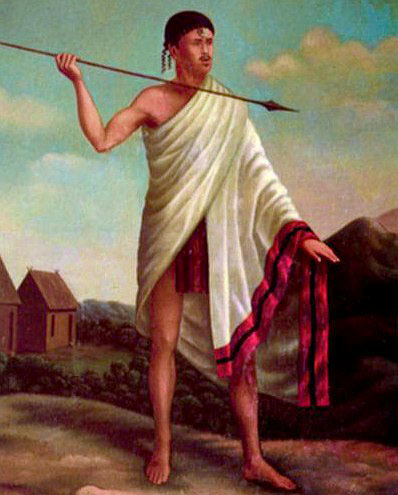 |
| 1905 Portrait of Andrianampoinimerina by Philippe-Auguste Ramanankirahina |
In the late 18th century, Imerina was still emerging from a period of profoundly devastating civil war. The man who would lift Imerina out of the civil war was born in the Kingdom of Zafumamy, a small offshoot kingdom located to the northeast of Ambohimanga. He was the son of the King of the Zafimamy and the princess of Ambohimanga.
 |
| The Rova of Ambohimanga remains one of the best-preserved and most visited Merina historical sites to this day. |
At a young age, Andrianampoinimerina, still then known by his birth name Rambosalamarazaka, quickly emerged as the favorite to inherit the kingdom of Ambohimanga. However, the kingdom was instead inherited by his uncle Andrianjafy. Throughout his rule, the king would enact several unpopular policies. His failed wars against the king of Antananarivo led to economic strife, as did growing tribute demands from Ambohimanga's Sakalava overlords. In order to cope with these growing demands, Andrianjafy made the unpopular decision to begin manufacturing criminal accusations against his own subjects to justify selling them into slavery.
 |
| The Hill of Ikaloy, the capital of the Zafimamy Kingdom. |
This unpopular decision justified a group of nobles in overthrowing Andrianjafy and placing Andrianampoinimerina into power.








